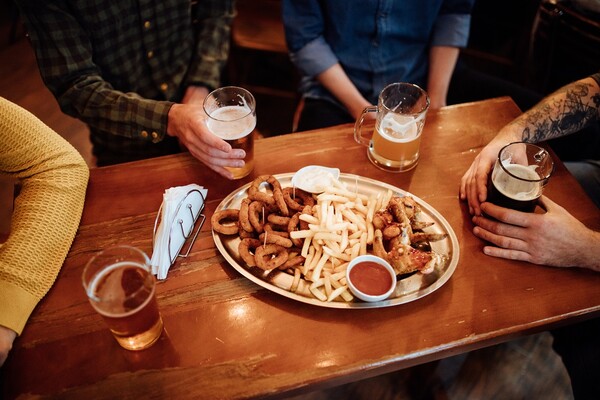
A study by Korean researchers has confirmed that changes in drinking behavior—such as non-drinkers starting to drink or existing drinkers increasing their intake—significantly affect the risk of stomach cancer.
This indicates that not only absolute alcohol consumption but also changes in drinking volume influence the likelihood of developing stomach cancer.
A research team led by Professors Kim Na-young and Choi Yong-hoon of the Department of Gastroenterology at Seoul National University Bundang Hospital (SNUBH) and Dr. Jang Ji-eun at the National Cancer Center analyzed data from the National Health Insurance Service’s health screening program.

They categorized 311,920 adults aged 40 and older into three groups based on daily alcohol intake: low (less than 15g for men, 7.5g for women), moderate (15–29.9g for men, 7.5–14.9g for women), and high (≥30g for men, ≥15g for women). The team announced these findings on Wednesday, based on a study that tracked participants for an average of approximately 12 years.
According to the researchers, an increase in drinking volume—regardless of baseline intake—was a clear risk factor for gastric cancer. Abstinence or reduced drinking lowered the risk. When non-drinkers began drinking, even at light levels, their gastric cancer risk increased by about 14 percent. Conversely, moderate drinkers who reduced their intake to light levels saw about a 20 percent risk reduction.
The patterns differed between men and women.
For men, non-drinkers had about a 10 percent lower risk of gastric cancer than consistent drinkers, while those who increased their intake faced roughly a 10 percent higher risk, clearly showing the link between changes in drinking volume and gastric cancer risk. In contrast, women showed a generally weaker association overall. However, when non-drinkers suddenly increased their intake to high levels, their gastric cancer risk nearly doubled, highlighting the dangers of binge drinking.
“This study clarifies that not only the absolute amount of alcohol consumed but also recent changes in drinking patterns are closely linked to gastric cancer risk,” Professor Kim said. “Continuously improving lifestyle habits toward moderation or complete abstinence plays a crucial role in preventing gastric cancer.”
Kim continued, “Abstinence is absolutely necessary, especially for those who have had early gastric cancer removed via endoscopy or who possess high-risk factors such as family history or smoking. If abstinence is difficult, efforts should be made to reduce alcohol consumption as much as possible.”
Related articles
- Chronic diseases climb in Korea, but treatment outcomes improve: KDCA
- Smoking, drinking cost Korea $20.5 billion in health insurance spending over 5 years
- Mediterranean and MIND diets may help curb Parkinson's progression
- Summer K-foods that can harm kidney patients
- Korean study reveals how binge drinking harms the liver at molecular level
- [Column] Does mixing alcohol make you drunker?
- MRI can distinguish adult auditory neuropathy from common hearing loss: study
- Fatty liver in 20s and 30s tied to about 20% higher cancer risk before 50: study
- Korean researchers find biomarker to predict early non-response to immunotherapy in triple-negative breast cancer

